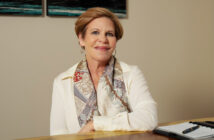The amount of wealth influenced by women and the rate at which it has been increasing are remarkable. Women are responsible for approximately $18.4 trillion in consumer spending and hold approximately 30 percent of global wealth.
They are the sole financial decision-makers for one-third of households in the United States, and 95 percent are involved in their households’ financial decisions. American women start 70 percent of all businesses, have a lower unemployment rate than men, dominate nine of the 10 fastest growing occupations and benefit from improving wage equality.
A Prudential Research study said, “Despite becoming a powerful financial presence in the United States and around the world, many women are more confident about financial decisions when they consult with an advisor. Currently, women are looking to financial representatives for assistance with:
• Wealth recovery: Women’s financial priorities include having enough money to provide a comfortable retirement. In response to the financial crisis and recession, almost one-half reported they plan to save more and retire later.
• Financial planning: Additional financial priorities include accumulating assets, protecting wealth and generating retirement income. However, just one-third of women have taken the time to develop and implement a financial plan.
• Investment strategies and products: Women say they are familiar with savings accounts, life insurance, workplace retirement plans, IRAs and annuities. They are less knowledgeable and would like to learn more about the potential cost of long-term care and strategies for generating retirement income.”
Women can also see the value in holding Alternative Investments like Commercial REIT’s, Private Equity and Business Development Companies. They have been quicker to adopt this strategy that institutional and pension plans have used to reduce volatility and increase overall returns. That savvy is one potential reason women investors are more inclined to keep all these strategies in their portfolios. Women are more diligent at understanding where they are putting their money than men, and are much better at learning and often they will come with a list of questions they want to understand.
Female investors were also more supportive of the notion that alternative investments would become core holdings over the next decade. There is a longer perspective on investing. They are very open to saying this is not a six- to 12-month investment, but a longer term strategy and don’t resort to trading which can ultimately prove to be detrimental to most people.
Women really depend on the trust they can build with an advisor, because the primary concerns across the board are safety and protecting their wealth so they don’t outlive their money. Women tend to be more attentive in the research aspect of investing and want to understand more and they are longer-term investors who stick to a strategy once they have it.
Seglund Financial Group
908 NE 4th Street Suite 201 Bend
www.seglund.com
541-318-9179





